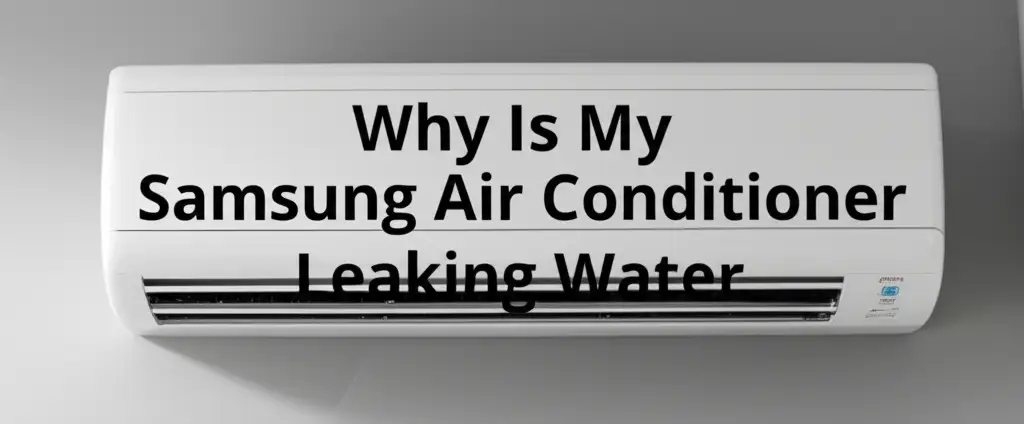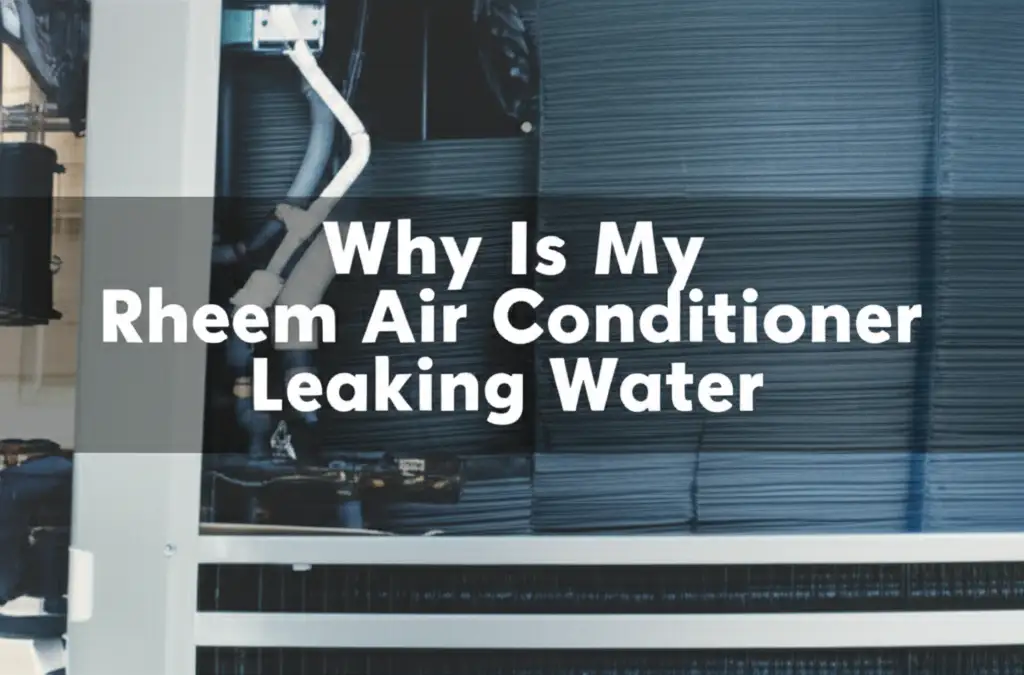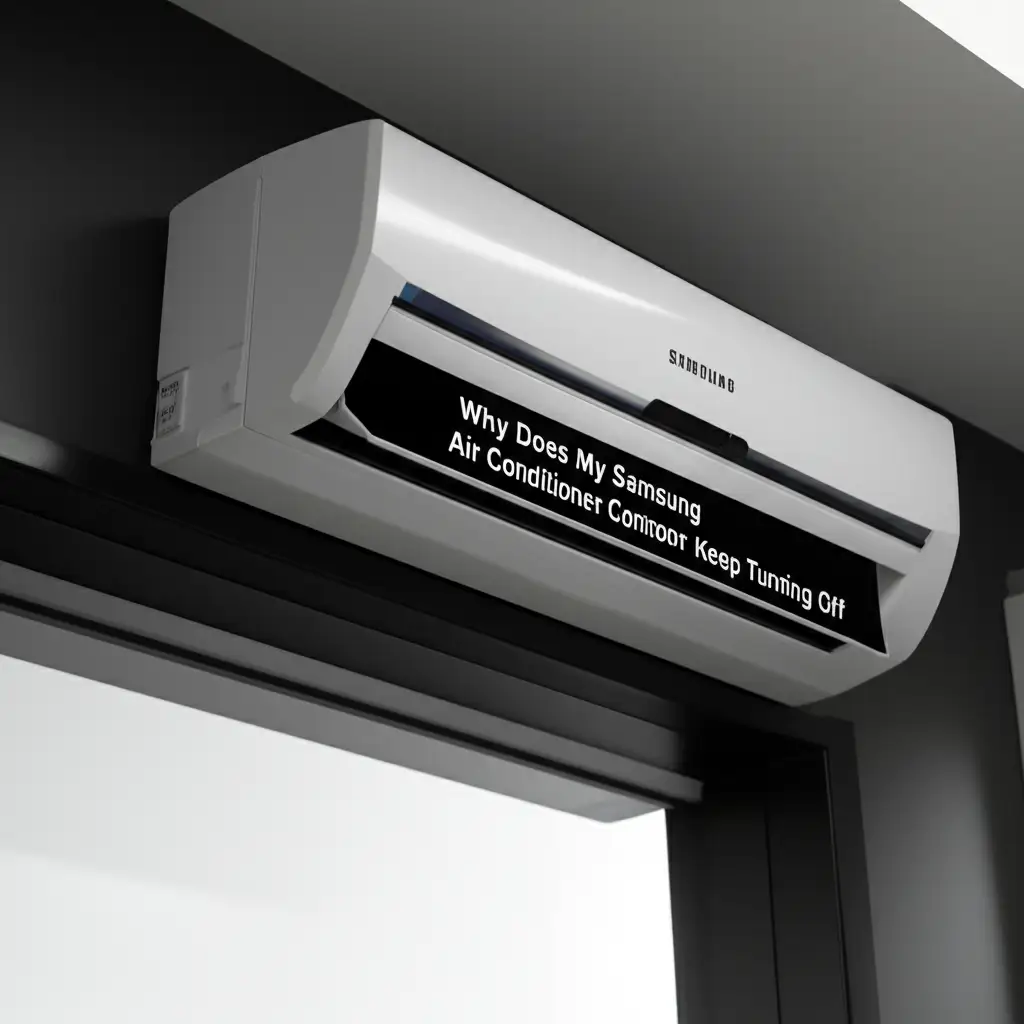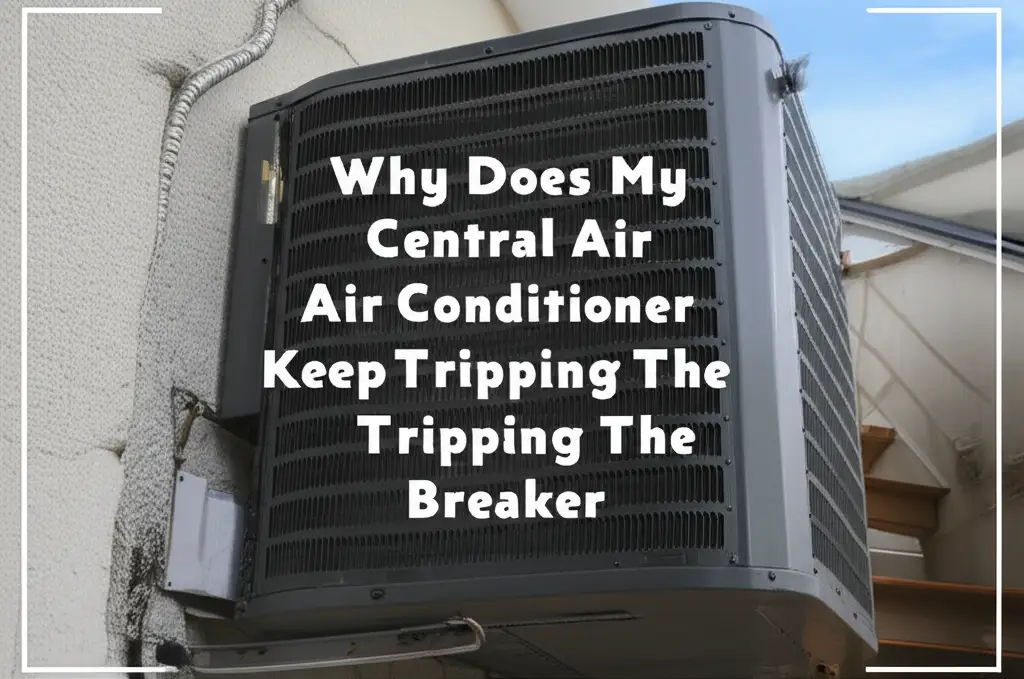· Todd Martin · HVAC, Home Appliances, Air Conditioning Repair, Troubleshooting · 21 min read
Why Does My Mitsubishi Air Conditioner Continuously Turn Itself Off
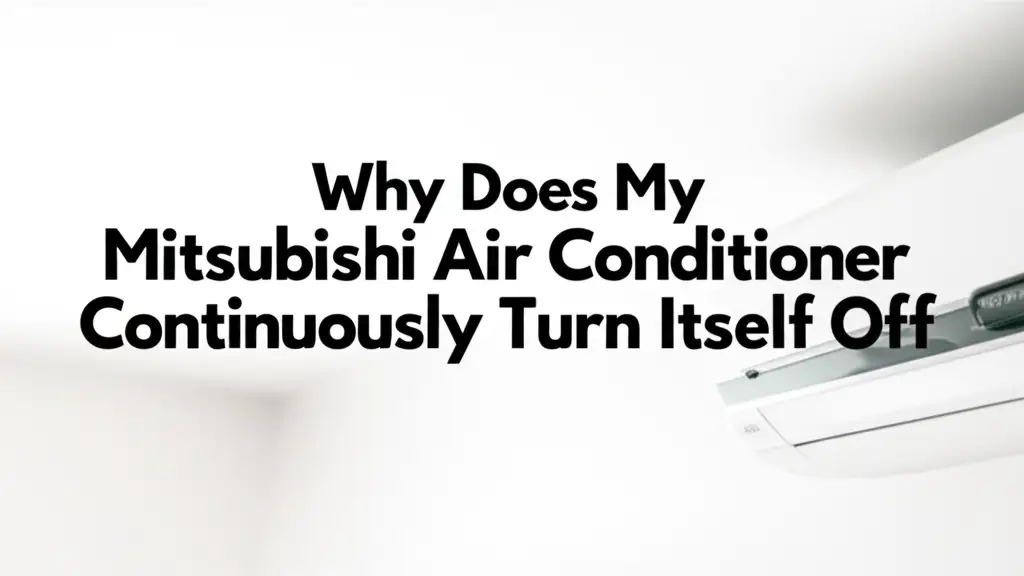
Why Your Mitsubishi AC Continuously Turns Off
Is your Mitsubishi air conditioner constantly shutting down? It is truly frustrating when your cool air stops. Your Mitsubishi air conditioner should provide consistent comfort. When it fails, you feel uncomfortable. A Mitsubishi air conditioner that continuously turns itself off is a common issue. This problem often points to an underlying malfunction. We will explore the main reasons why your AC unit might be acting this way. We will also provide practical solutions. This guide helps you diagnose and fix many common problems. You can keep your home cool and comfortable.
Takeaway
- Check Filters First: A dirty filter is the most common cause of short cycling. Clean or replace it immediately.
- Inspect for Ice: Frozen coils mean reduced airflow or low refrigerant. Shut off your AC to thaw them.
- Monitor Refrigerant Levels: Low refrigerant leads to poor cooling and system shutdowns. This needs professional help.
- Examine Electrical Components: Tripped breakers or faulty parts can cause shutdowns. Reset or replace them safely.
- Clear Drain Lines: Clogged condensate drains trigger safety switches. Keep them clear to prevent water overflow.
Your Mitsubishi air conditioner continuously turns itself off because of issues like dirty air filters, low refrigerant, frozen evaporator coils, electrical problems, or a faulty thermostat. These issues cause the unit to short cycle, which means it turns on and off too frequently. The system tries to protect itself from damage.
Dirty Air Filters Restrict Airflow
Dirty air filters are a very common reason why your Mitsubishi air conditioner continuously turns itself off. The filter blocks dust, dirt, and pet dander. Over time, these particles build up. This buildup creates a thick barrier. Air cannot pass through this barrier easily. Your AC needs a steady flow of air to work properly.
When airflow is blocked, the AC unit struggles. It cannot move enough air over the evaporator coils. These coils become too cold. They can even freeze. A frozen coil makes the system less efficient. It can also cause damage. Your Mitsubishi air conditioner has safety sensors. These sensors detect problems like low airflow or freezing. They shut down the unit to prevent damage. This protects the compressor. The unit turns off, then tries to start again. This cycle repeats. This is called short cycling.
To fix this, you should check your air filter regularly. Most manufacturers recommend checking filters monthly. You can clean reusable filters or replace disposable ones. Clean filters ensure proper airflow. This helps your AC run efficiently. It also stops it from turning off too often.
How Filters Affect Performance
Air filters play a vital role in your AC system. They are the first line of defense. The filter protects the indoor coil from dirt and debris. A clean filter allows air to flow freely over the evaporator coil. This air removes heat from your home. The coil absorbs the heat. It then transfers the heat to the refrigerant. When the filter is dirty, this process stops.
The evaporator coil cannot absorb heat efficiently. The refrigerant pressure drops. The coil gets too cold. It can freeze solid. This frozen coil acts like an ice block. Air cannot pass over it at all. The AC system cannot cool your home. The fan continues to run, but no cool air comes out. The unit then shuts itself down. This prevents the compressor from overheating. It also protects other parts from strain. Regular filter maintenance keeps your system running smoothly. It extends the life of your Mitsubishi air conditioner.
Steps to Clean or Replace Filters
Cleaning or replacing your Mitsubishi air conditioner filter is simple. First, turn off your AC unit at the thermostat or breaker. Safety is always important when working with appliances. Locate the filter slot. It is usually behind the return air vent or inside the indoor unit. Some Mitsubishi mini-splits have filters inside the head unit.
Carefully slide out the old filter. If it is a disposable filter, throw it away. Replace it with a new, clean filter. Make sure the arrows on the filter point in the direction of airflow. This is usually towards the unit. If you have a reusable filter, you can clean it. Use a vacuum cleaner to remove loose dirt. Then, wash it with mild soap and water. Rinse it thoroughly. Let it air dry completely before putting it back. A damp filter can cause mold growth. Clean filters prevent your air conditioner from turning itself off. For a complete guide, learn how to clean your air conditioner or specifically, how to clean a Mitsubishi mini split.
Low Refrigerant Levels or Leaks
Low refrigerant is another serious reason why your Mitsubishi air conditioner continuously turns itself off. Refrigerant is the substance that absorbs heat from your home’s air. It then releases that heat outside. Your AC system is a closed loop. Refrigerant should not deplete over time. If your refrigerant levels are low, it means there is a leak somewhere in the system.
When refrigerant levels drop, the pressure inside the system changes. The evaporator coils get too cold. This can lead to freezing. The compressor also works harder to try and cool your home. This increased strain causes it to overheat. Many AC units have safety switches. These switches detect low pressure or high temperatures. They shut down the unit to prevent severe damage. This protects expensive components like the compressor.
You cannot add refrigerant like you add gas to a car. It is a complex process. Only a certified HVAC technician can safely add refrigerant. They must also find and repair the leak. Ignoring a refrigerant leak will cause ongoing problems. It can lead to complete system failure. This issue needs professional attention.
Signs of Low Refrigerant
Several signs indicate low refrigerant levels in your Mitsubishi air conditioner. First, your AC may blow warm air. It struggles to cool your home effectively. Even if it runs for a long time, the temperature does not drop. Second, you might hear a hissing or bubbling noise. This sound comes from the refrigerant leaking. It is a sign of gas escaping the lines.
Third, ice may form on the refrigerant lines or evaporator coil. This happens because of the pressure drop. The coil gets too cold and freezes. Fourth, your energy bills might increase. The system works harder to cool your home with less refrigerant. This consumes more electricity. Finally, the AC unit may short cycle. It turns on, runs for a short time, then turns off. This is the unit trying to protect itself from damage. If you notice any of these signs, call a professional. They can diagnose the issue and fix the leak.
The Danger of DIY Refrigerant Handling
Handling refrigerant without proper training is extremely dangerous. Refrigerants are chemicals. They can cause severe frostbite if they touch your skin. They can also harm your eyes. Inhaling large amounts of refrigerant can lead to dizziness, nausea, or even suffocation. Refrigerants are also greenhouse gases. Releasing them into the atmosphere harms the environment.
Federal law requires anyone handling refrigerants to be certified. They must follow strict guidelines for recovery and disposal. DIY attempts to add refrigerant can also cause further damage to your AC unit. You might overcharge the system. This creates too much pressure. It can lead to compressor failure. It is much safer and more cost-effective in the long run to hire a professional. They have the right tools and expertise. They can safely identify leaks and recharge your system.
Frozen Evaporator Coils
Frozen evaporator coils often cause your Mitsubishi air conditioner to continuously turn itself off. The evaporator coil is inside your indoor unit. It absorbs heat from the air. When this coil becomes covered in ice, it cannot do its job. Air cannot flow over an icy surface. This reduces the cooling capacity.
A frozen coil forces the AC unit to work harder. It tries to maintain the desired temperature. The extra strain can damage the compressor. Most modern AC units have sensors. These sensors detect freezing. They shut down the system. This protects the compressor and other vital components. Once the unit turns off, the ice may slowly melt. The unit might then restart. However, the problem will return if the underlying cause is not fixed.
The main causes of frozen coils are low airflow or low refrigerant. Low airflow comes from a dirty filter or blocked vents. Low refrigerant means a leak in the system. Always address the root cause of the freezing. Only thawing the coil does not solve the problem.
Why Coils Freeze
Evaporator coils freeze for two primary reasons. The first reason is restricted airflow. Your AC system needs a steady flow of warm air over the evaporator coil. This warm air prevents the coil from getting too cold. If the airflow is blocked, the coil temperature drops below freezing. This happens with a dirty air filter. It can also happen with blocked return air vents. Closed supply registers in rooms can also restrict air. A weak blower motor also causes this.
The second main reason for frozen coils is low refrigerant. When the refrigerant level is low, the pressure in the system drops. This pressure drop causes the refrigerant to get much colder than it should. The coil then absorbs too much heat from the small amount of refrigerant. It becomes very cold. Ice starts to form on the coil. Both restricted airflow and low refrigerant prevent the coil from properly absorbing heat. This leads to ice buildup.
Thawing Your AC Coils
If your Mitsubishi AC evaporator coils are frozen, you need to thaw them before running the unit again. First, turn off your air conditioner at the thermostat. Set it to “off” or “fan only.” Do not try to run the AC in cooling mode. This can damage the compressor further. Open up the indoor unit’s cover if possible. This allows more ambient air to reach the coil.
You can let the coil thaw naturally. This takes several hours, usually 2-24 hours, depending on the ice thickness. Place towels around the unit to catch any melting water. You can also speed up the thawing process. Use a fan to blow room temperature air directly onto the coil. Do not use a hairdryer or anything that generates heat. This can damage the coil. Once all the ice has melted, clean your air filter. Check for any other airflow obstructions. Then, you can turn your AC back on. If the coils refreeze quickly, you likely have a refrigerant leak. You will need a professional for this. Learn how to clean air conditioner coils.
Electrical Issues and Power Problems
Electrical issues are common culprits for an AC unit turning itself off. Your Mitsubishi air conditioner needs consistent power. Any interruption or fault can cause it to shut down. This is a built-in safety feature. It protects the unit from electrical damage. Common electrical problems include tripped circuit breakers, faulty wiring, or failing capacitors.
A tripped circuit breaker is often the easiest to fix. It means the AC unit drew too much power. This could be due to a surge. It could also mean a problem within the unit itself. Faulty wiring can cause intermittent power loss. Loose connections generate heat. This can lead to shutdowns. Capacitors store electrical charges. They help start the motors in your AC. If a capacitor fails, the motors may not start. The unit then tries to run but quickly shuts off.
Always exercise caution with electrical components. If you are unsure, call a professional. Working with electricity can be dangerous. An expert can diagnose complex electrical faults safely.
Tripped Circuit Breakers
A tripped circuit breaker is a common electrical issue. Your Mitsubishi air conditioner draws a lot of power. This is especially true when it starts up. If the AC pulls too much current, the circuit breaker trips. It cuts off power to the unit. This protects your home’s wiring from overheating. It also protects the AC unit from damage.
Go to your electrical panel. Look for a breaker that is in the “off” position or halfway between “on” and “off.” Flip it completely “off” first. Then, flip it back to the “on” position. This resets the breaker. If the breaker trips again immediately, there is an underlying problem. This could be a short circuit in the AC unit. It might be a faulty motor or capacitor. It could also mean the circuit itself is overloaded. Do not continuously reset a tripping breaker. This can cause severe damage or fire. If it keeps tripping, you need professional help. Read more about why your window air conditioner keeps tripping the breaker or your portable air conditioner keeps tripping the breaker.
Faulty Wiring or Capacitors
Beyond tripped breakers, faulty wiring or failing capacitors can cause your Mitsubishi AC to turn off. Loose or damaged wiring can interrupt power flow. This leads to intermittent operation. The AC might run for a few minutes, then shut down unexpectedly. Wires can become frayed over time. Rodents might chew on them. Connections can loosen due to vibrations. This creates dangerous electrical hazards.
Capacitors are critical components. They store electrical energy. They provide a jolt of power to start the compressor and fan motors. If a capacitor is weak or failing, it cannot supply enough starting power. The motors struggle to start. The unit might make a humming sound. It then shuts down. Visually inspect capacitors for bulging or leaks. This indicates a problem. Replacing a capacitor requires electrical knowledge. It involves discharging the capacitor safely. Do not attempt this unless you are experienced. These issues often require a qualified technician for safe repair.
Thermostat Malfunctions
Your thermostat is the brain of your Mitsubishi air conditioner system. It tells the AC when to turn on and off. If the thermostat is not working correctly, it can send wrong signals. This can cause your AC to short cycle. It might tell the unit to turn off even when your home is still warm. A malfunctioning thermostat can lead to unnecessary shutdowns.
Reasons for thermostat issues include dead batteries, incorrect settings, or faulty sensors. Older mercury thermostats can lose calibration. Digital thermostats can have internal errors. Sometimes, the thermostat’s sensor reads the room temperature incorrectly. If it thinks the room is cooler than it is, it will shut off the AC prematurely.
Before assuming a major AC problem, always check your thermostat. It is a simple first step. Many issues are easy to fix with a quick adjustment. A faulty thermostat can lead to uncomfortable temperatures and wasted energy.
Checking Your Thermostat Settings
The first step in troubleshooting thermostat issues is to check its settings. Make sure your Mitsubishi AC thermostat is set to “Cool” mode. Double-check the temperature setting. Is it lower than your current room temperature? If the setting is higher or equal, the AC will not turn on. Ensure the fan setting is on “Auto.” If it is on “On,” the fan will run continuously, but the compressor might still short cycle.
Also, check if the batteries are dead in a battery-powered thermostat. Low batteries can cause erratic behavior. Replace them if needed. Some thermostats have a “hold” or “vacation” setting. Make sure these are not active. These settings can override your regular schedule. Finally, ensure the thermostat is clean. Dust inside can affect its sensors. A quick check of these settings can often resolve the “turning off” problem immediately.
Calibrating or Replacing a Faulty Thermostat
If thermostat settings are correct, but the issue persists, your thermostat might need calibration or replacement. Over time, some thermostats can lose their accuracy. They may read the temperature incorrectly. For older mechanical thermostats, you can sometimes recalibrate them. Check your thermostat’s manual for specific instructions. Most digital thermostats do not require manual calibration.
If the thermostat is still acting erratically, it might be faulty. A professional can test its sensor and connections. They can determine if it sends the correct signals. Replacing a faulty thermostat is a common repair. It is usually straightforward. You can often do it yourself if you follow instructions carefully. However, ensure you turn off power to the unit before starting. A new, properly working thermostat ensures your Mitsubishi air conditioner runs as it should. It provides accurate temperature control.
Clogged Condensate Drain Line
A clogged condensate drain line can also cause your Mitsubishi air conditioner to continuously turn itself off. As your AC cools, it removes humidity from the air. This moisture collects as condensation on the evaporator coils. It then drips into a drain pan. From there, it flows out through a condensate drain line.
Over time, algae, mold, or debris can build up in this drain line. This creates a clog. When the drain line clogs, the water cannot flow out. The drain pan overflows. Most AC units, including Mitsubishi models, have a safety float switch. This switch detects overflowing water. When the water level rises too high in the pan, the switch trips. It sends a signal to the thermostat. The thermostat then shuts down the entire AC system. This prevents water damage to your home.
The AC unit will not run again until the clog is cleared. Clearing the drain line is a routine maintenance task. It is often preventable with regular care.
How a Clogged Drain Line Stops Your AC
A clogged condensate drain line directly impacts your AC’s operation. The drain line carries away condensation. This water forms as humid air passes over the cold evaporator coil. If the drain line becomes blocked, the water has nowhere to go. It backs up into the drain pan. This pan has a limit. Once the water level in the pan rises too high, it activates a safety float switch.
This switch is a crucial safety mechanism. It protects your home from water damage. When the switch floats up, it sends a signal. This signal tells the air conditioner to shut down. The AC stops running. This prevents more water from overflowing the pan. Your Mitsubishi air conditioner will not turn back on until the drain line is clear. It will stay off until the water level drops. This is why a clogged drain can make your AC seem broken when it is just a safety shutdown.
Clearing the Drain Line
Clearing a clogged condensate drain line is a task you can often do yourself. First, turn off your Mitsubishi AC unit at the thermostat or breaker. Locate the indoor unit and the condensate drain pan. The drain line is usually a PVC pipe exiting the unit. It might go into a nearby drain or outside.
Look for the access point on the drain line. It might have a cap or a T-shaped vent. Remove the cap. Use a wet/dry vacuum cleaner to suction out the clog. Attach the vacuum hose tightly to the end of the drain line outside. Let it run for a few minutes. You can also carefully pour a mixture of distilled vinegar (about one cup) down the access point. Let it sit for 30 minutes to an hour. This helps dissolve algae and mold. Flush it with water. Then, reattach the cap. Turn your AC back on. Check if the problem is resolved. Repeat if necessary. Regular pouring of vinegar can prevent future clogs.
Oversized AC Unit and Short Cycling
An oversized Mitsubishi air conditioner can also cause your system to continuously turn itself off. An AC unit that is too large for your home’s square footage cools the space too quickly. It satisfies the thermostat’s temperature setting very fast. This means the unit runs for only a short period. It then shuts off. Soon after, the temperature rises slightly, and the unit turns back on. This constant on-and-off cycle is called “short cycling.”
While it might seem efficient to cool your home fast, short cycling is bad for your AC. It puts immense strain on the compressor. The compressor uses the most energy when it starts up. Frequent starts and stops wear it out faster. This leads to premature breakdown. An oversized unit also struggles with humidity removal. It does not run long enough to dehumidify the air. Your home might feel cool but clammy.
Short cycling indicates a mismatch between the unit’s capacity and your home’s needs. This problem requires professional assessment. It often needs system adjustment or even replacement.
Recognizing Short Cycling
Recognizing short cycling in your Mitsubishi air conditioner is important. It is usually very noticeable. A normal AC cycle lasts for about 15 to 20 minutes, sometimes longer. If your AC unit is turning on and off every few minutes, it is likely short cycling. It runs for a very brief period, maybe 5 to 10 minutes, and then shuts down. Then, after a short break, it starts again. This repeats frequently.
You will notice the compressor kicking on and off too often. You might hear the distinct “thunk” of the unit starting. This happens more frequently than it should. Your home’s temperature might fluctuate more. It could feel cool for a moment, then quickly warm up. Your energy bills might also be higher. This is because the most energy is consumed during startup. Frequent startups mean more energy waste. If you observe these patterns, your AC is short cycling. This needs to be addressed. This issue is similar to why your central air conditioner keeps turning on and off.
Consequences of Oversizing
An oversized air conditioner has several negative consequences. First, it leads to increased wear and tear on components. The compressor, the most expensive part, suffers the most. Frequent starts and stops shorten its lifespan. This means costly repairs or early replacement. Second, an oversized unit is less efficient. It consumes more energy during constant startups. Your utility bills will be higher than they should be.
Third, it fails to dehumidify your home properly. Air conditioning removes both heat and humidity. A unit that runs for short periods does not have enough time to draw moisture from the air. Your home might feel cool, but it will also feel damp and clammy. This creates an uncomfortable environment. It can also encourage mold growth. Finally, it provides inconsistent cooling. Some rooms might be too cold, while others remain warm. Proper sizing is crucial for comfort and efficiency. This problem can also affect portable air conditioners turning off by themselves or window air conditioners turning off by themselves.
Fan Motor Issues
The fan motor in your Mitsubishi air conditioner is essential. It moves air across the evaporator coils (indoor unit) and the condenser coils (outdoor unit). If either fan motor has problems, your AC system will struggle. It can cause your unit to continuously turn itself off.
In the indoor unit, the blower fan circulates air. It pushes air across the evaporator coil to absorb heat. If this fan motor fails, airflow stops. The evaporator coil freezes over quickly. The unit’s safety features then shut down the system. Similarly, the outdoor fan motor pushes air over the condenser coil. This helps release heat outside. If this fan fails, the condenser coil cannot dissipate heat. The refrigerant pressure builds up. The compressor overheats. Safety sensors detect this high temperature. They shut down the unit.
Signs of fan motor issues include unusual noises, no air movement, or the unit overheating. A failing fan motor needs prompt attention. It can prevent significant damage to the entire AC system.
Indoor Blower Fan Problems
The indoor blower fan is inside your Mitsubishi air handler. It pushes cooled air through your home’s ducts. If this fan motor has problems, your AC can short cycle or shut down. A failing motor might make grinding or squealing noises. It might spin too slowly. Or it might not spin at all.
When the indoor blower fan does not work properly, airflow across the evaporator coil drops. This causes the coil to get excessively cold. It leads to ice formation on the coil. As discussed earlier, a frozen coil triggers safety shutdowns. The AC unit stops operating to prevent damage. You might notice little to no air coming from your vents. Your home will not cool efficiently. The unit might run for a very short time. Then it turns off. Addressing indoor fan motor issues restores proper airflow. It allows your AC to cool effectively without shutting down.
Outdoor Condenser Fan Problems
The outdoor condenser fan is just as important as the indoor one. This fan pulls air over the condenser coil. It helps release the heat from your home into the outside air. If the outdoor fan motor fails, the condenser unit cannot cool down. The refrigerant in the condenser coil remains hot. The pressure in the system rises to dangerous levels.
This high pressure and heat put extreme strain on the compressor. The compressor
- Mitsubishi AC
- AC turning off
- air conditioner problems
- HVAC troubleshooting
- AC repair
- short cycling
- AC maintenance
- Mitsubishi mini split


